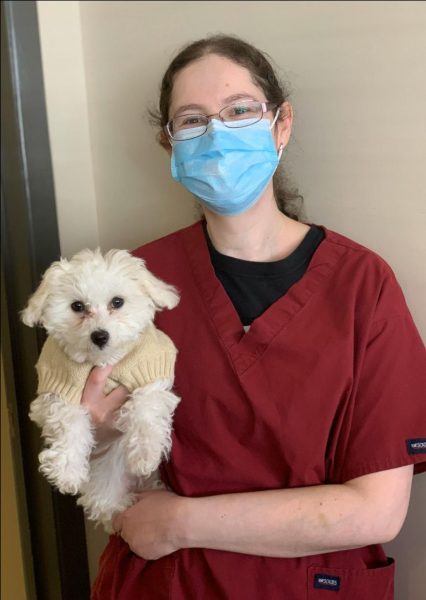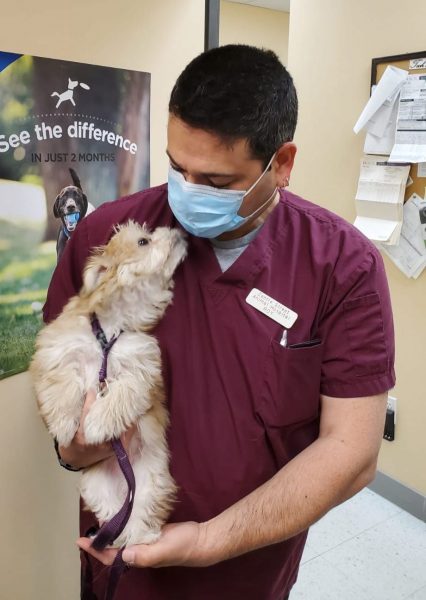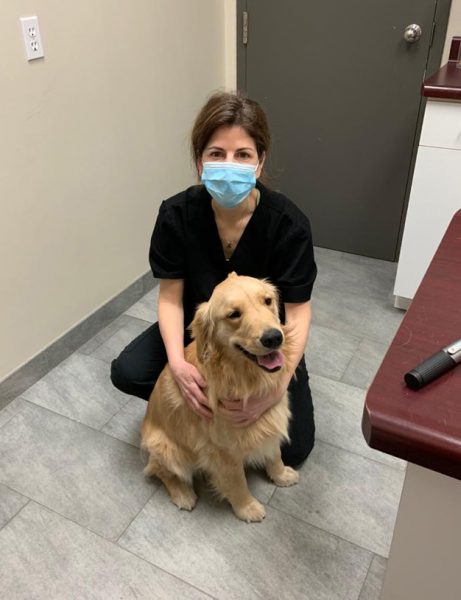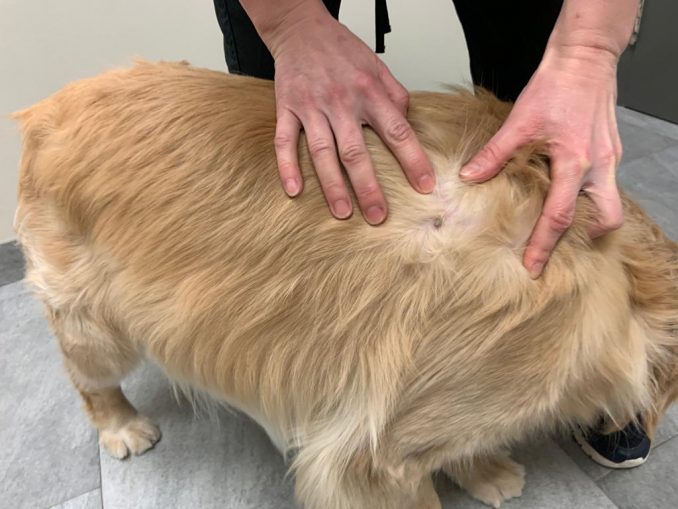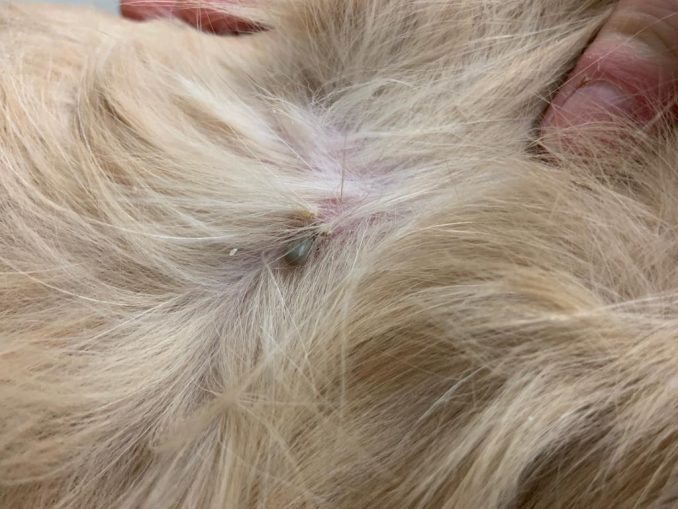 Category: Blog
Category: Blog
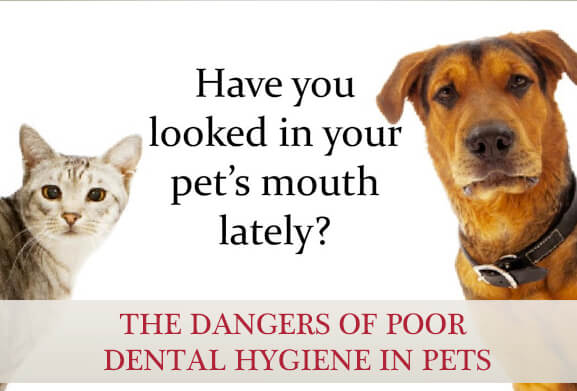
The Dangers of Poor Dental Hygiene in Pets
Have you ever taken a look inside your pet’s mouth? If you do, you might be surprised at what you see. Oral health problems are a struggle for both dogs and cats. An estimated 80 percent of dogs have significant oral problems, and their owners have no idea that their pets are suffering. Cat owners are surprised to learn that around 70 percent of all cats have significant oral health problems by the age of three.
Unfortunately, if you are not being proactive to take care of pet dental care routines, your pet probably has an oral health concern. When a veterinarian points out these painful problems, most owners exhibit genuine surprise and shock. As a responsible pet owner, you owe it to yourself to know what oral hygiene problems can crop up in your pet, how they affect his or her health and what you can do about them.
Common Oral Health Problems in Pets with Poor Oral Hygiene
If you ignore your dog or cat’s teeth, they will develop oral health problems that are painful and dangerous. Some common problems include:
- Gingivitis – Inflammation of the gums that can be painful for your pet.
- Periodontitis – General disease in the oral cavity that attacks both the gums and the teeth.
- Pyorrhea – Inflammation in the gums and the tooth sockets, which can cause the teeth to loosen and create puss around the tooth.
- Caries – Decalcification of the tooth enamel that leads to cavities. While rare in dogs, they can happen.
- Plaque – Buildup of bacteria, cells and polymers on the teeth often at the gum line.
- Tartar – Calcium carbonate and calcium phosphate combined with plaque that creates a hard buildup on the teeth.
- Feline odontoclastic resorption lesions – Painful lesions that eat away at healthy oral tissue and lead to tooth destruction in cats.
- Oral cancers – Oral cancers can affect both dogs and cats, and if they are not found quickly, they can be fatal.
- Gingivostomatitis – Inflammatory condition of the oral tissue causing red, swollen tissue that bleeds easily. This condition affects cats.
How do these conditions occur? In both dogs and cats, the most common cause of these problems is plaque and food that is not removed from the teeth and gums through proper oral hygiene. Over time, that plaque and food that is left behind in the pet’s mouth creates a breeding ground for bacteria, which in turn cause inflammation and irritation. Once the irritation and inflammation sets in, the pet’s oral health is compromised, and your pet will begin to suffer.
Dangers of Oral Health Problems Beyond the Mouth
The obvious dangers of oral health problems, including tooth loss and irritation in the mouth, are not the only problems that oral disease can cause. When the mouth is chronically diseased, the inflammation can spread to other areas of the body. The toxins from the oral diseases are absorbed into the pet’s bloodstream, passing into the rest of the body. If the disease in the mouth is not treated and prevented, the animal can suffer from other health conditions as a result, as the toxins spread to the kidney, heart and brain.
Keeping Your Pet’s Teeth Clean and Healthy
To avoid these problems, you must pay attention to oral hygiene for your pet. Oral hygiene starts with the right food. Choose a pet food that is well-balanced and primarily meat-based. Dry food can help limit problems, as it does not stick to the teeth as easily. Your veterinarian can help you select a food that is ideal for your dog or cat.
Then, provide your pets with chew treats that require them to exercise their teeth. Rawhide bones for dogs, for instance, encourage chewing behaviors that loosen plaque buildup. Finally, establish a brushing routine that gives you the chance to brush your pet’s teeth on a regular basis. Brushing a dog’s teeth or brushing a cat’s teeth is not an easy task, especially at first, but you will find it well worth the effort when your pet has better overall health.
At-home pet dental care is crucial to keep your pet’s teeth clean and healthy, but don’t neglect routine oral care at the vet. Schedule cleanings at least once a year to ensure that your pet’s teeth get a deep down clean from a pet healthcare professional.
If your pet is due for a teeth cleaning, Centre Street Animal Hospital is ready to help. Contact us to schedule a cleaning today, and take measures to protect your pet’s oral health, which will also help protect his or her overall health and comfort. Don’t forget that February is national pet dental health month, and our current promotion ends March 12.
Preventing Pet Separation Anxiety From COVID-19

How to Prevent Separation Anxiety After COVID-19
The COVID-19 pandemic has many of us working remotely, and some are self-isolating to help flatten the curve. You might be wondering, “Will my dog suffer from separation anxiety when life goes back to normal?”.
Panic and the uncertainty of being alone are the foundation of separation anxiety in our pets. Pets may damage property or themselves, bark or cry excessively, pace frantically, or soil carpets and furniture. Prevention is the key to building confidence in your pets. Pets who cause damage are NOT MAD at you for leaving them alone. They miss you and are acting out their panic. Punishment often makes things worse. While at home:
- Create a safe haven space. Allow for quiet time apart during the day where you detach physically. You may crate your dog, use a mat across the room, or even sit on the opposite end of the couch.
- Use your dog’s senses to promote relaxation and comfort. Set up a white noise machine and spritz her safe haven space with synthetic canine pheromones or pet-safe lavender essential oils.
- Desensitize your dog to typical departure cues at non-routine times of the day. Pick up your keys then go fold laundry. Put on your shoes and go to the bathroom. Leave through the front door and come right back through the back door.
- Incorporate independence-building games like hide and seek with favourite toys placed throughout the house. Scatter a few loose treats in different rooms, so your dog has to work to sniff them out.
- Ask your dog to sit or lie down at her safe haven space. Make sure she watches you as you leave the room to set up the different toys and treats, then let her wait (as long as she can without punishing her!). Your goal is to build a little impatience here.
Dogs love routine. We need to build new routines for them when we start to leave the house again. By using the safe haven, relaxation cues, and confidence-building games, we can help increase our dog’s ability to settle into life without you 24-7.
Should You Get Pet Insurance?
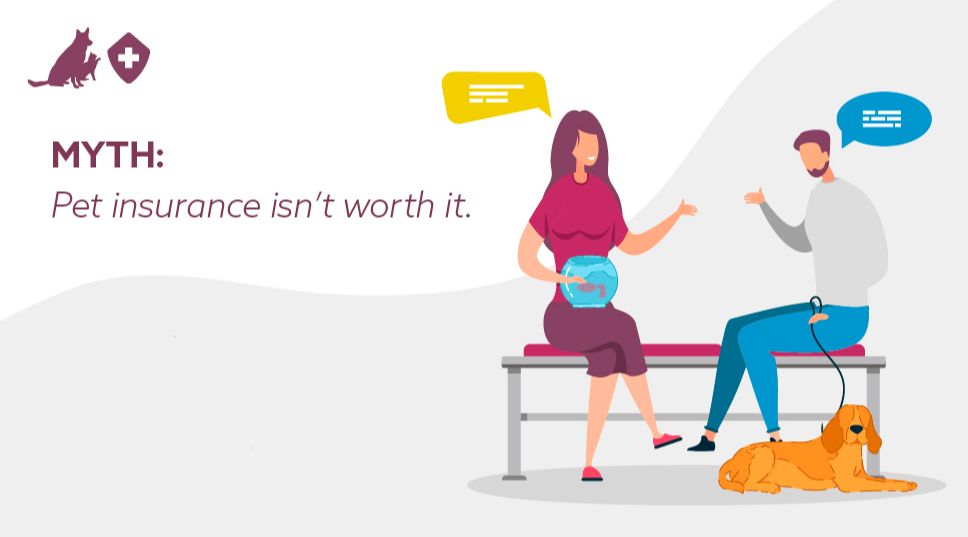
There are a lot of misconceptions when it comes to getting insurance for your pet. Having a better understanding of how coverage works can help you see the value in having your pet covered, no matter what their age or lifestyle. Below are some common myths about pet insurance. If you have questions or would like some suggestions for insurance providers, give us a call!
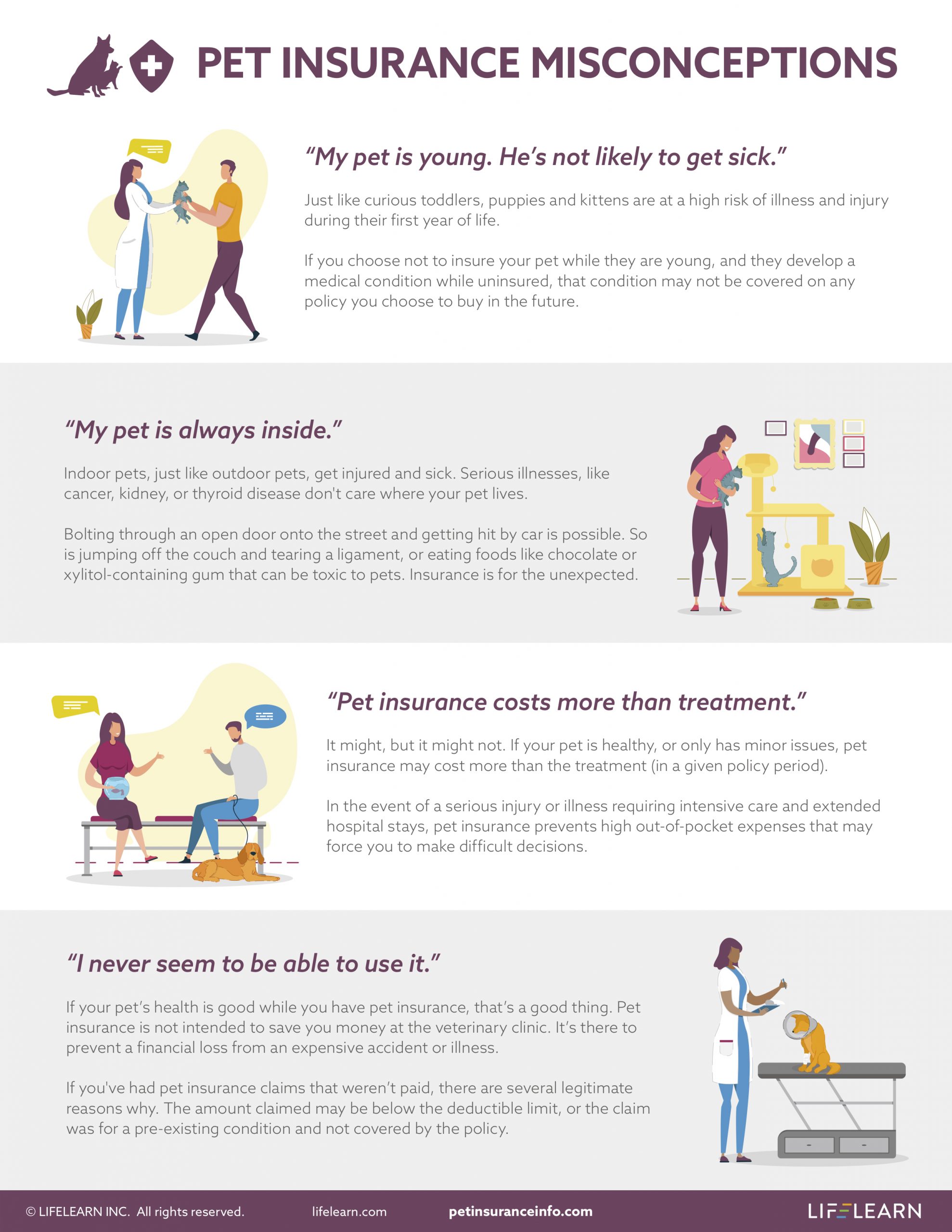
Staying Protected Throughout the Seasons

As summer begins to wind down, the temperatures will drop quickly. This means continuing with your Simparica Trio medication is more important than ever, as certain types of ticks actually prefer cooler weather. Additionally, when Ontario gets more temperate and rainy, we sometimes see a spike in upset stomachs from a parasite called Giardia. This parasite thrives in still water like puddles and ponds, so ensure your pet avoids drinking from these at all times.

Heat Safety, Tick Talk & Video Appointments!
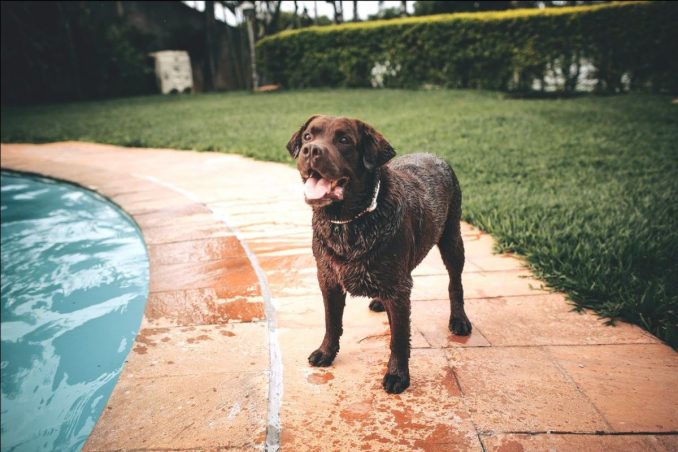
Pet Safety Tips for the Summer Heat
As we enter our summer months, it’s important to recognize how sensitive our pets are to the changing weather and environment. Read through these helpful tips so you can keep your pets safe and enjoy the summer together!
Know Your Dog
Some dogs are more susceptible to heat exposure and the effects of the sun. Certain breeds of dogs can have a more difficult time with heat. Research your dog’s breed to find out what they are more or less susceptible to.
Protecting Pads
Easy rule: if the pavement is too hot for your feet, then it is too hot for your dog’s paws. Limit your time outside especially when temperatures are high, and stick to grassy areas. Signs of burnt pads include limping, licking or chewing feet, refusing to walk, missing part of the pad, blisters or redness.
Hot Cars
Do not leave any pets alone in your vehicle. It doesn’t matter if you roll down the window or park under shade, it can still be life-threatening to your pet. Animals have a limited ability to sweat, meaning heat does not escape their bodies easily, so even a short time in a hot environment can be dangerous.
Hydratation and Shade
Make sure your pet always has access to fresh water, and find a cool place away from the sun while spending time with them outside. This can prevent your pet from getting heat stroke.
Be Aware of Bugs
Ontario is full of bug species that are harmful to our pets. Mosquitoes can transmit heartworm, fleas can lay eggs, ticks can transmit other diseases like Lyme disease, and large flies can bite thin skin causing itching and irritation. Call us to learn more about the various insect and parasite preventative products.
Heat Exposure
- Take dogs on walks in the morning or evening when the temperature is lower. Keep them on leash to prevent them from running, leading to overexertion.
- Certain types of dogs, such as Northern breeds or short-muzzled dogs can have a more difficult time in the heat. Dogs that are older, overweight, taking certain medications or with certain medical conditions are also more susceptible to heat exposure.
- If you are travelling and can’t take your pet inside with you when you leave your car, leave them at home where they are safe and cool.
- If you do not have air conditioning at home, provide a fan to keep your pets cool and comfortable. Close the curtains to keep the temperature lower, and give animals access to a cool room within your home. Spaces with bare floors are ideal, as they provide a cool place for your pet to lay down.
- Watch for signs of heatstroke, including excessive panting and drooling, listlessness or unconsciousness. If heatstroke is suspected, immediate veterinary medical attention is required.
- To help cool the animal, wet the fur immediately with lukewarm to cool water (NOT cold water.) Bring the pet into the shade and offer drinking water.
Don’t be afraid to go out and enjoy the weather with your pet! Just keep these handy tips in mind when you do, and enjoy the summer weather! And remember: if you see an animal in distress in the heat, call the government’s animal protection hotline at 1-833-9ANIMAL or your local police.
Courtesy of https://ontariospca.ca/.
Tick Talk: How Much Do You Know?
Learn More at: https://ticktalkcanada.com/
New Appointment Style: Zoom & Video Chats

As we maintain our COVID-19 clinic procedures, just a general reminder that curbside appointments are taking longer than usual. With that in mind, please allocate 60-90 minutes for each visit.
We are also beginning to set up video chat appointments in our exam rooms using ZOOM software, with a webcam and microphone for optimal audio and video capabilities. As soon as these are available, we will let you know upon booking. You will also be sent a link via email with all of the necessary details for setting up the video chat at your appointment time. Stay tuned!
COVID-19 Updates & BIG NEWS for Dr. Hogle!
Congratulations Dr. Hogle!!!
We are overjoyed to announce that on May 24th, our very own Dr. Hogle gave birth to a healthy baby girl named Elyse! Despite the challenges of bringing a newborn into the world during a pandemic, mom and baby are doing well. Congratulations Dr. Hogle, we will miss you on mat leave and can’t wait to meet her!
Update on COVID-19 Procedures
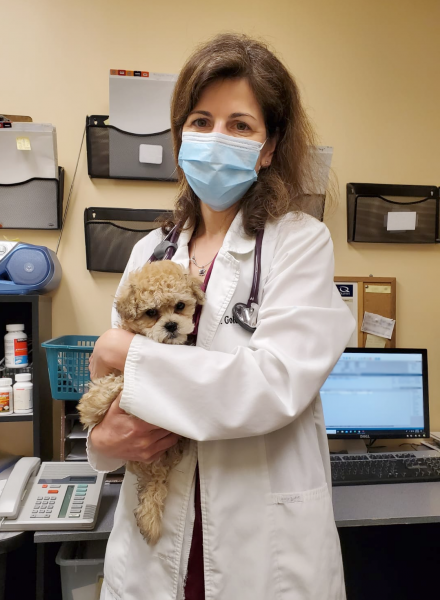
Although some of the COVID-19 policies in Ontario are on the verge of being loosened, we are still keeping the majority of procedures in place to ensure the health and safety of our staff, clients and patients.
A few things to note as we welcome patients back for routine appointments:
- We will be continuing our locked-door policy, curbside pickup, and product delivery service
- Due to the additional precautions being taken, appointments are taking a little longer than usual, so please allocate at least 60 minutes for each visit
- We are staying on top of all the latest updates and research, and will keep you informed as things progress
Parasite Prevention for Cats
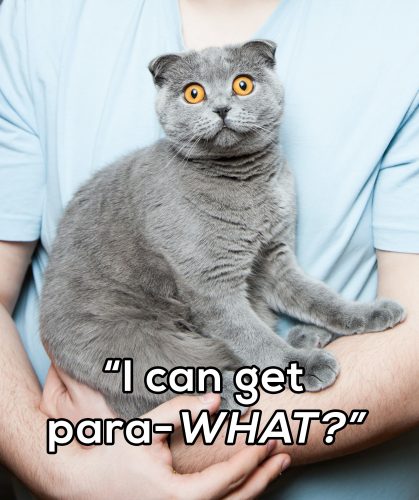
No matter what their lifestyle, indoor or outdoor, all cats should consider protection from the various disease-causing parasites in Ontario. Enter Revolution® PLUS: the only FDA-approved 6-in-1 preventative product with broad-spectrum action against parasites that threaten cats and kittens. Revolution PLUS is a small amount of topical liquid that is easily applied once a month, and dries quickly. It’s as simple as that!
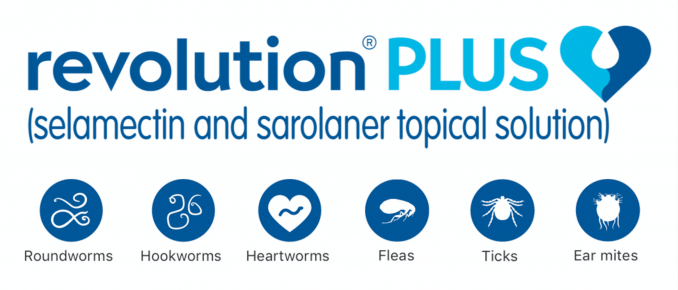
Parasites are NOT necessarily “outdoor-only”.
Fleas, ticks, ear mites, intestinal worms, and heartworms can get into any home by hitchhiking indoors on other pets or creatures, shoes and clothes, or through doors and windows. Meaning cats and kittens of every lifestyle can regularly come in contact with harmful pests.
Contact us today to order your monthly doses, and keep your cats protected!
Hello, from Dr. Slome!
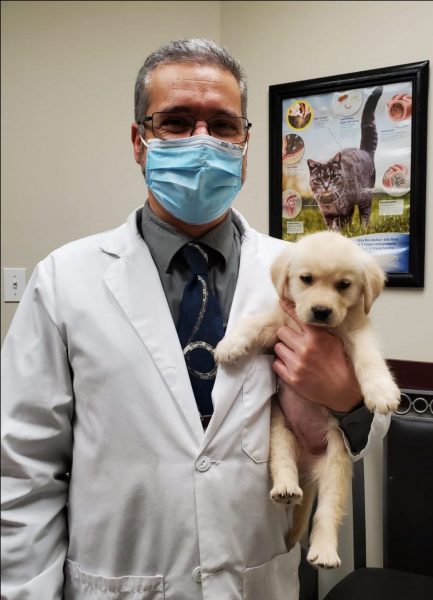
Dear CSAH Family,
There are no woofs and meows about it, these last 2 months have been extremely challenging for everyone. I could carry on writing about what everyone has already mentioned, however it is not going to change things. I believe that by now, we all realize that we are in the same (Noah’s) Ark, and that we are all trying to find a way to adapt, accept and move on, as this virus flood hopefully comes to an end.
I don’t think it is inaccurate to say ‘thank heavens’ for our furry family members as they have generally been a beacon of joy, and a really important source of comfort during this time. We realize that there is a great responsibility on veterinary health care providers to continue to treat them when they are not feeling well, and to ensure their continued health and happiness via proper preventative care. We have been feeling just as frustrated in being restricted from providing routine care as you have been in having routine procedures and visits postponed. Fortunately, as of Tuesday, May 19th, these restrictions have lifted and we will now be able to provide full veterinary, medical, dental and preventative care again. While there is definitely a sense of relief (as well as excitement) that comes with this, we are still keeping safety in mind and won’t be returning to completely normal operations just yet. There will be a controlled phase-in period to slowly ramp back up while still respecting safety measures for everyone – our team, our clients and our pets. Future email newsletters will provide updates on the progress and changes, but please feel free to contact us anytime you have questions or concerns.
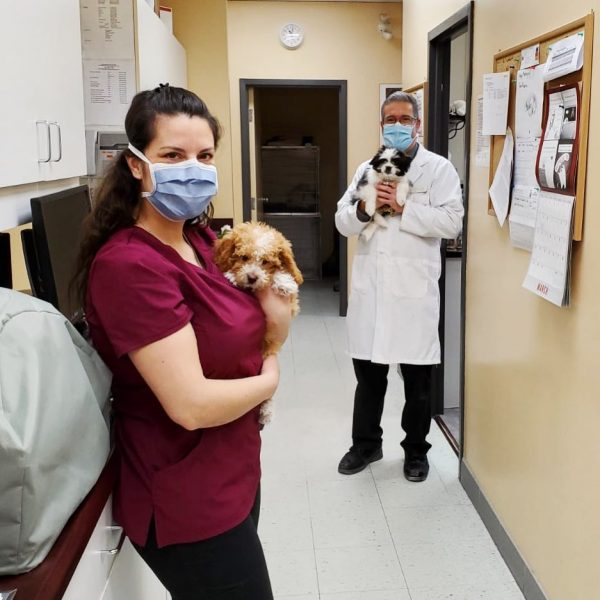
We greatly value the relationships we have with each pet and their family. I want to sincerely thank you all for your patience, and look forward to eventually seeing you all again in person, hopefully sooner than later. Instead of signing off the traditional COVID-19 way, which constantly reminds us of how dour things are and is in our face all the time, let me rather end by saying: Enjoy the extended daylight hours and the warmth of summer upon us; take your dogs out for walks, enjoy interacting with your pets in your backyard, or at least spend more time with them in the bright sunny rooms indoors. These periods of happiness along with the rays of sunlight that surround us are sure to be the best medicine of all… smile, giggle, laugh, and let something about your furry family member make you feel happy every day!
Warm regards,
Martin Slome
COVID-19 Updates & Reopening!
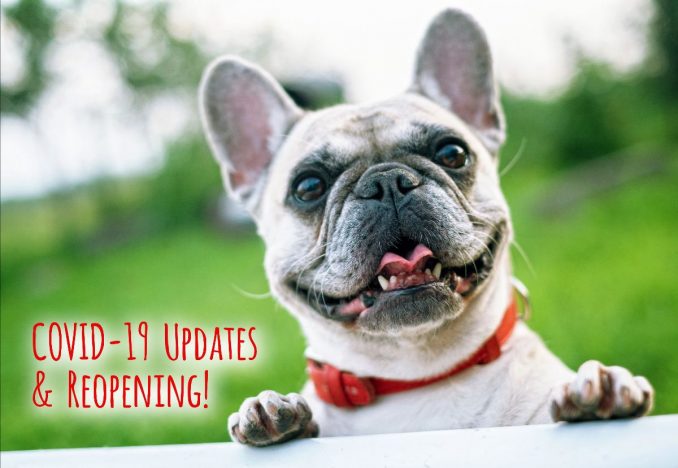
We are happy to announce that we have been given the go-ahead to start seeing all of our patients again! We will still focus on safety first by maintaining our social distancing and sanitation protocols, and keeping the office doors locked at all times. We will continue with drop-off appointments for the foreseeable future, and telemedicine appointments (phone calls or video consults) will continue to be available as well.
Rescheduling Routine Appointments
We are in the process of reviewing and reassessing our list of pets who have had their appointments postponed over the past 2 months. This includes all routine procedures, surgeries (spays, neuters, dental cleanings), annual exams, vaccines, and bloodwork.
We will be evaluating each pet on a case-by-case basis, scheduling those who are the most overdue and/or urgent first. We will contact clients directly to schedule their pet’s new appointment, but please feel free to reach out to us with any concerns or questions. 905-771-9855
Delivery Service
Our NEW delivery service will remain available to the Thornhill and surrounding area, operating on Tuesdays and Thursdays. Clients must call us in advance to place their orders and pre-pay for medications, food and other retail products.
Radius and Delivery Charges:
- Within Dufferin/Highway7/Yonge/Steeles = $6.00 per delivery
- Within Keele/Rutherford/Bayview/Finch = $9.00 per delivery
Tips on How to Continue Keeping Your Pets Safe
1. Maintain good hygiene practices, always washing hands before and after handling animals, pet food and supplies.
2. Keep all pets away from sick or at-risk people, as you would with any other household members.
3. If you or a family member are/become infected, limit interaction with pets as much as possible. Avoid all direct contact with your pets – including petting, snuggling, kissing, being licked, or sharing food while symptomatic.
We will be resuming our normal weekly operating hours starting next week, but please note that we will remain closed on Saturdays for the time being. We are looking forward to catching up with everyone soon! Stay safe!
All-in-One Parasite Prevention: New Product Announcement!
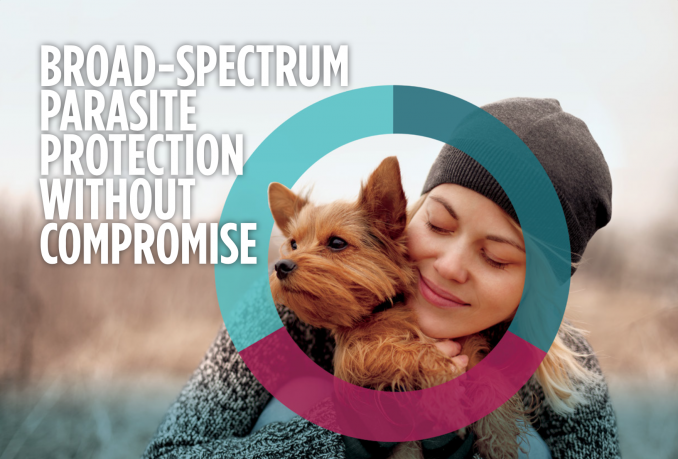
Hello CSAH family!
Just a friendly update that the highly anticipated all-in-one parasite prevention – Simparica Trio – is now ready for pickup! This easy-to-use product is a tasty monthly tablet that will provide your dog* with effective and essential protection against a broad range of parasites:
- Fleas
- 5 common tick species in North America
- Heartworm
- Intestinal worms (roundworms and hookworms)
*Simparica Trio is specifically formulated for dogs. For cats who go outdoors or for families with both dogs and cats, we advise Revolution Plus which provides the same broad spectrum coverage for our feline friends.
Give us a call at 905-771-9855 to order your supply! And new for 2020, delivery is available!
First doses should be administered around June 1st, 2020.
Heartworm Testing During CODI-19
Heartworm testing is an important part of your pet’s healthcare. However, due to the COVID-19 restrictions from the Ontario government, we will need to temporarily postpone this year’s testing until the regulations have lifted. We will still be able to dispense Simparica Trio to start on June 1 for those pets who are due for testing this year, but the initial number of doses may be reduced until we can move forward with testing again.

We are happy to pass along an extra benefit available this year! When you pick up your Simparica Trio product, you will be automatically eligible for a rebate of $25 – $40! See below and click the image for more info.
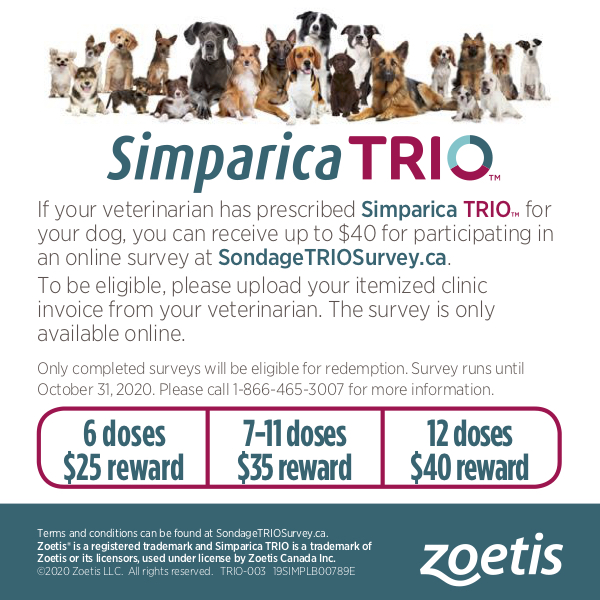
Contact us by phone or email to order your pet’s parasite preventatives, and ensure that your entire family is protected! As always, let us know if you have any questions.
Introducing: Telemedicine
We’re not sick, but there’s some serious puppy fever going around the office these days! ❤️Molly and Coco both enjoyed their visits this week, and especially their treats at the end!
Telemedicine Appointments
Just a friendly reminder that we are offering Telemedicine appointments. This means we can conduct your pet’s appointment via 2-way video chat as opposed to coming to the clinic in person. If you would like to book a Telemedicine appointment (or for more details), please give us a call and request this option.
Affordable Pet Care Just Got Easier
Get the care you need today, and pay for treatment costs overtime with a payment plan.
The benefits of a payment plan:
– Split treatment costs into smaller monthly (or bi-weekly) payments
– Not a credit card
– No deferred interest or membership fees
Because difficult financial decisions shouldn’t have to be difficult. Find out your options today by clicking the link below, and feel free to give us a call if you have any questions.
* Scratch Pay plans in the US are issued by WebBank,while in Canada, they are issued by ©Scratch Financial,Inc. ©Scratchpay (NMLS ID#: 1582666). Eligibility is required for these loan products.
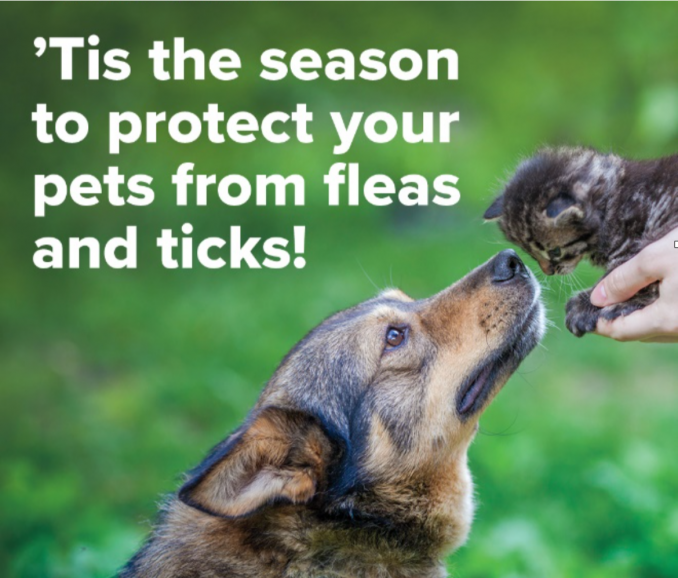
Reminder: Parasite Prevention
At this time of year, it’s crucial to protect your pet from parasites. Make sure you check your pet every day for fleas and ticks, and contact us to order your preventative products if you have not yet!
Thank you for your continued support and understanding in these difficult times. We will get through this together. Feel free to call or email us if you have questions or concerns. 905-771-9855
COVID-19 and Your Pets: Everything You Need to Know
If you have any questions about your pet, or if you suspect they are showing symptoms, please do not hesitate to call us immediately at 905-771-9855.
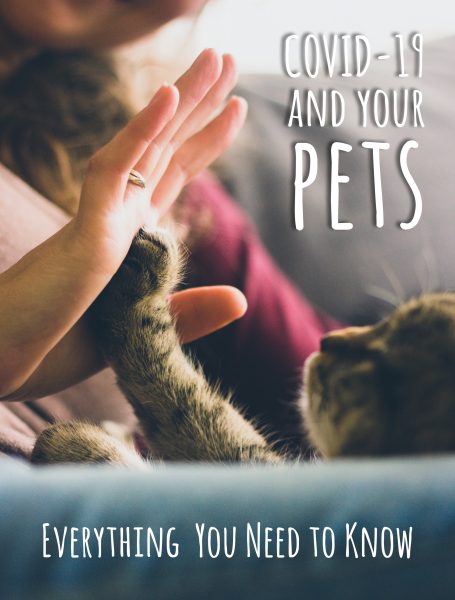
As of April 7th, 2020, the research suggests that pets are overwhelmingly safe. However, being a new virus, we haven’t had a long time to study it and the conclusions are not 100%. These findings may change as we learn more. Here’s what we know so far:
1. Can Humans Pass the Coronavirus to Pets?
The risk is currently assessed as LOW.
There is very little evidence worldwide that pets can contract the virus let alone show symptoms. The handful of cases of animal testing positive for SARS-COV-2 spotted so far worldwide are inconclusive. However, if pets do get it, it’s due to human hosts primarily.
The exception would have to be Ferrets and to a lesser degree cats. There is some evidence they can become infected as they share similar traits in their lungs with humans but the evidence is inconclusive.
2. Can Pets Pass the Coronavirus to Humans?
The risk is currently assessed as LOW.
This virus is thought to originate from bats but has developed into more human to human transmission. There is no evidence currently that pets can pass it to humans either from having the virus themselves or acting as a carrier to the virus (on their fur for example) but that doesn’t mean it cannot happen. To date, this is a theoretical risk only.
3. Can Pets Pass the Coronavirus to Other Pets?
The risk is currently assessed as LOW.
There has recently been a case of a tiger who contracted the disease from a zoo employee and a few other tigers in her area who also started showing symptoms. The likelihood is that they all caught the virus from the same human source, but researchers cannot 100% rule out transmission from the known positive case (only 1 tiger was officially tested). So far this has been the only known potential animal to animal transmission.
4. How Should I Disinfect my Pet?
First, do not use any household chemicals or disinfectants. This can hurt them. The only way is to bathe them properly as if they were muddy – with pet approved shampoo.
5. Can I Take Them for Walks?
Of course! But please respect social distancing for them as well as yourselves. Outdoor cats should be kept indoors for the time being.
6. How Do I Keep My Pet Safe?
The primary measures to manage these potential risks are following basic public health prevention guidance for preventing zoonotic disease transmission, including:
• Respect social distancing rules for pets from other animals not in your household as well.
• Wash your hands before and after touching an at-risk animal or their food/supplies, and after cleaning up after them; do not touch your face with unwashed hands (consider wearing gloves).
• Wear protective outerwear to prevent contamination of your clothes if meeting unknown animals.
• Regularly clean and disinfect any surfaces or objects the animal touches; see Health Canada’s approved list of disinfectants.
• Minimize the animal’s contact with people and other animals
• Bathing or wiping down animals with a pet-friendly product could theoretically help to reduce any possible fur contamination, although there is no evidence to demonstrate effectiveness.

And Please Also Consider:
1. Maintain good hygiene practices, always washing hands before and after handling animals, pet food and supplies.
2. Keep all of our pets away from infected people, as you would with any other household members.
3. If you or a family member are/become infected, limit interaction with pets as much as possible. Avoid all direct contact with your pets – including petting, snuggling, kissing, being licked, or sharing food while symptomatic.
What to do if your pets exhibit flu-like symptoms:
If you are concerned or notice any sudden changes in your pet’s health, contact us immediately and keep them indoors until your scheduled appointment. Signs of illness in cats and dogs can be associated with various common viral and bacterial infections that are not transmittable to humans, so there is no need to panic. Give us a call at 905-771-9855 and we can answer any questions or concerns you may have.
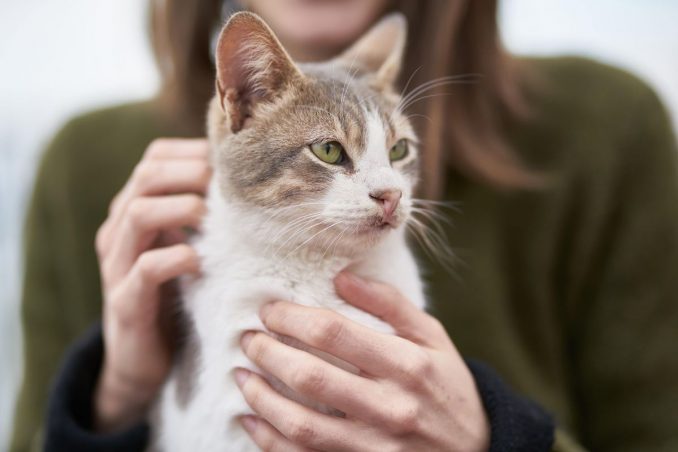
Apart from maintaining good hygiene practices, pet owners do not need to be overly concerned.
We are here for your pets and will plan to remain open for as long as possible during the weeks ahead. However, we also want to ensure the safety of our staff and clients.
Thank you for your understanding and cooperation.
COVID-19 and Tick Season Risks
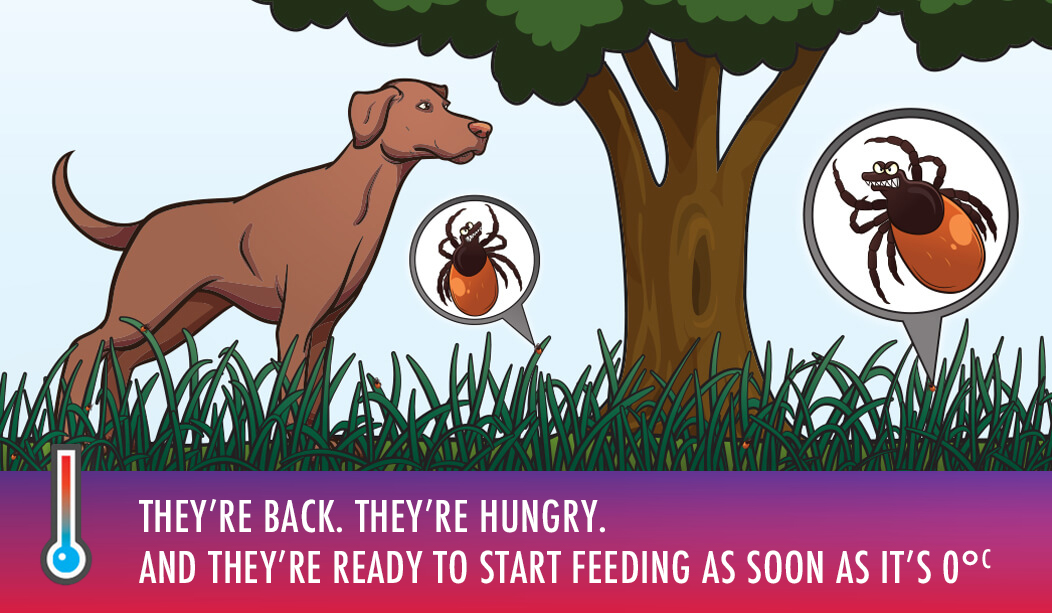
One of the unexpected side-effects of the current healthcare situation is that pet owners are home more than usual, and going for longer walks with their pets. While dogs are likely over-the-moon about this extra time outdoors, there are some other creatures that are taking advantage of this as well.
The mild weather we’ve been having is one of the prime temperatures for adult ticks. That, combined with the extra wildlife taking back the streets (skunks, raccoons, foxes, coyotes, and even deer), is producing one of the most active weeks that we’ve seen for ticks in recent memory.

Don’t Let Ticks Catch You by Surprise
Lyme disease in particular has been an increasing concern around the GTA, so we recommend tick and flea prevention medications for at least 9 months of the year (and potentially year-round) to protect against the diseases they carry.
There are now several product choices available. If you have not yet picked up tick prevention for your pet this year, call or email us to arrange to have some reserved for your pet as soon as possible, to ensure that they are protected.
Extra Information for Cat Owners: Cats are generally less likely to contract tick-borne diseases, however families with outdoor cats and families with both dogs and cats have an increased risk. Also, make sure to NEVER use a dog tick prevention product on a cat – they can be toxic. Ask us about tick preventives made specifically for cats.
Jemma in for a tick removal! Luckily her owners caught it quickly!
Insider Preview!
Starting this heartworm season (June 1st) there is a new all-in-one product on its way! Simparica Trio will be available later this spring, and offer protection against fleas, ticks, heartworm, roundworm and hookworm. Stay tuned, more details to follow! Give us a call to reserve your medication!



